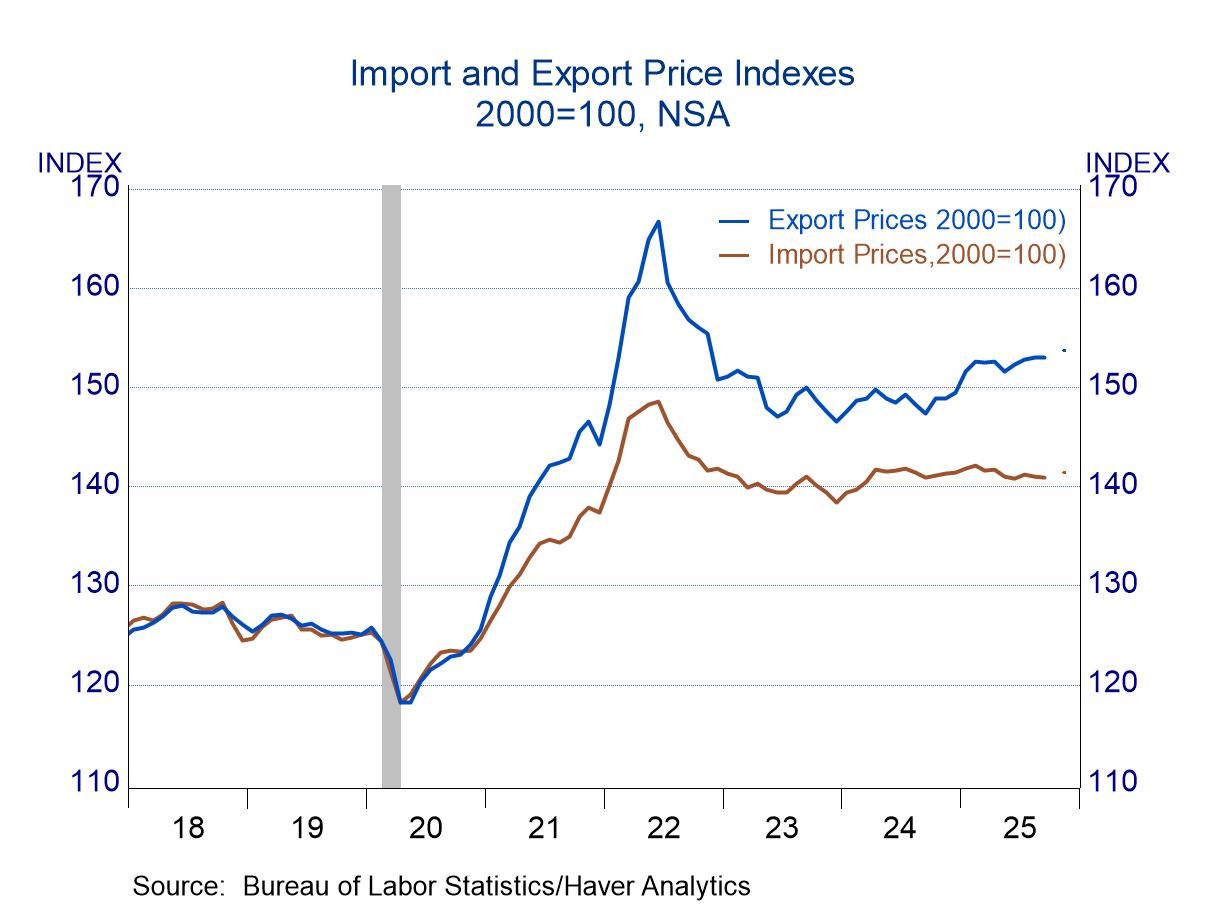U.S. Producer Price Index Unexpectedly Surges in July; Core Prices Strengthen
by:Tom Moeller
|in:Economy in Brief
Summary
- Core index posts unexpected gain.
- Trade service prices move markedly higher.
- Food & energy price inflation also accelerates.
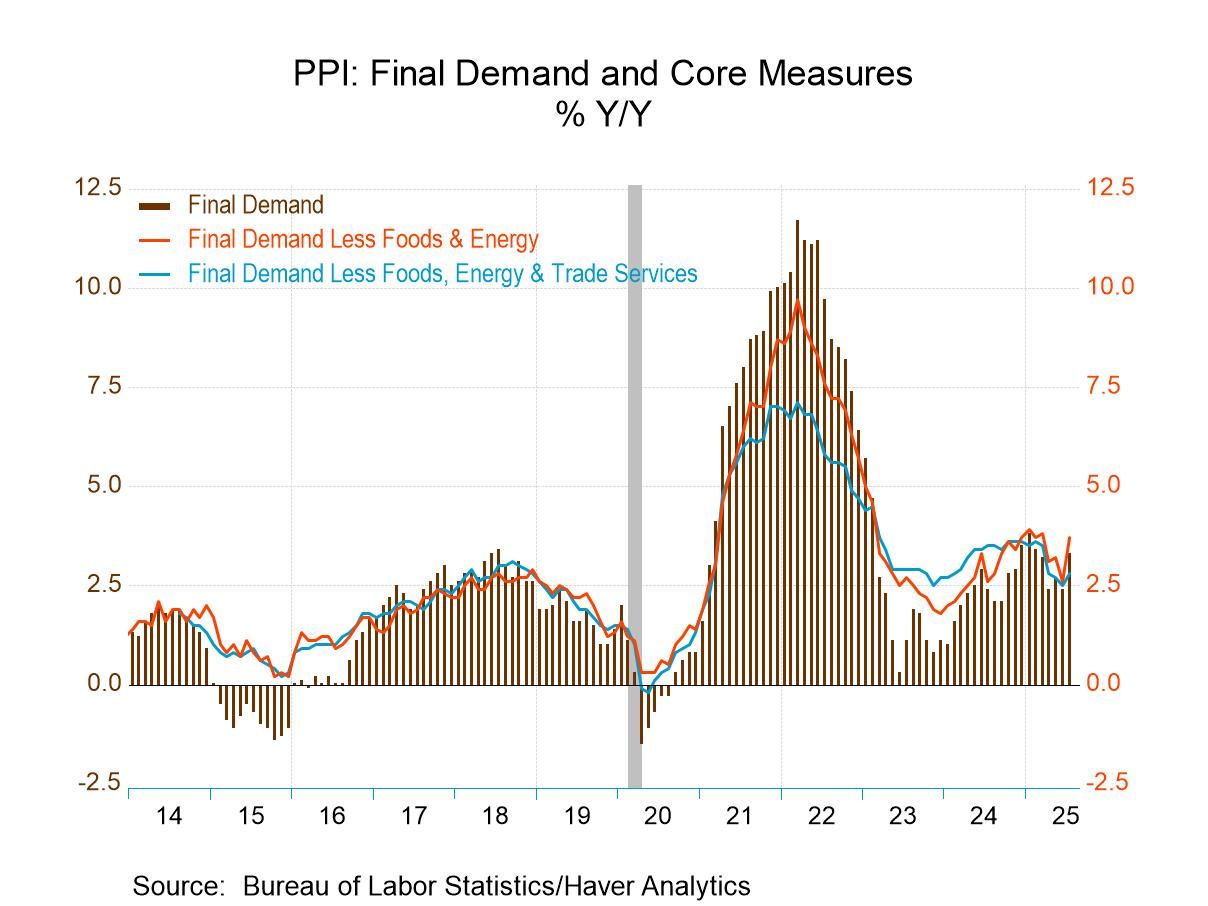
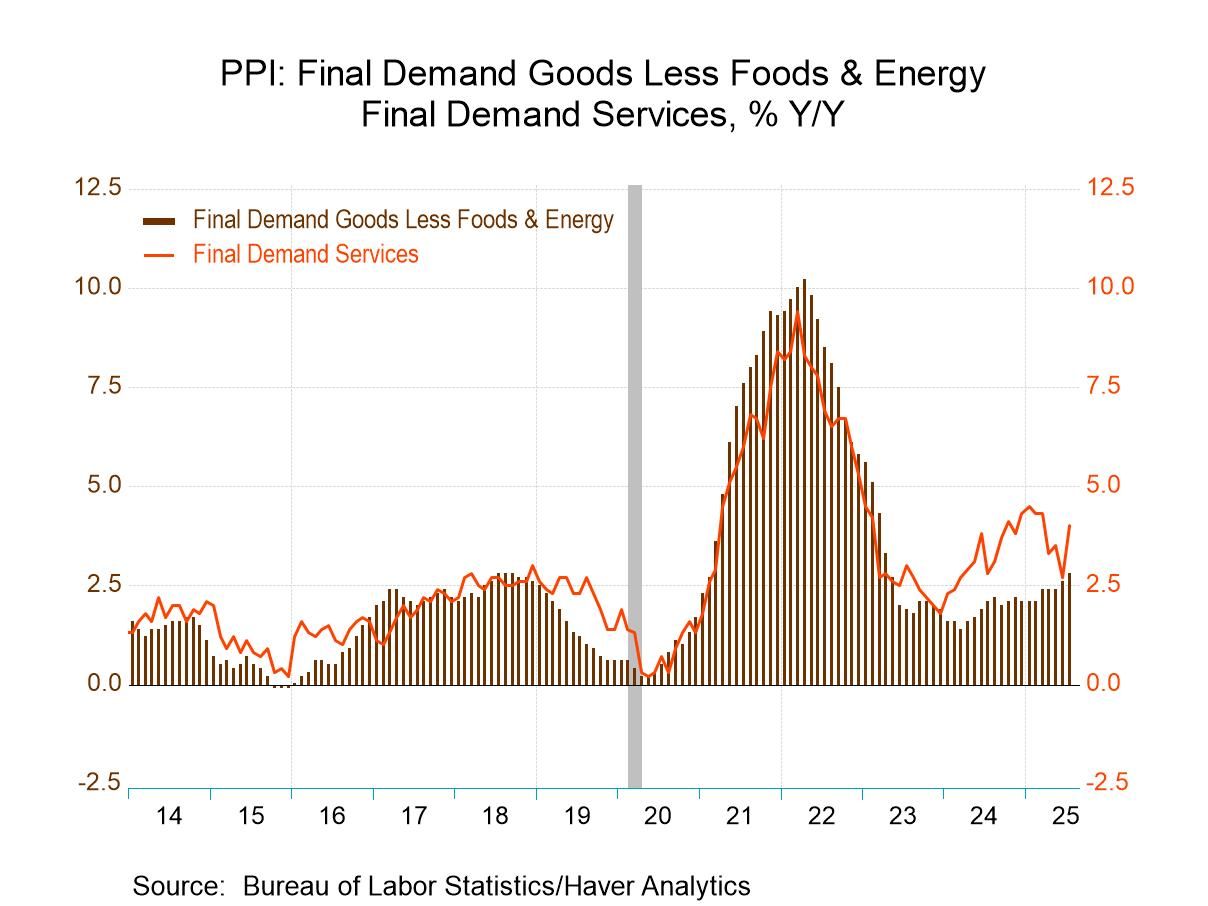
The Producer Price Index for final demand strengthened 0.9% (3.3% y/y) during July after unrevised stability in June and a 0.4% May increase, revised from 0.3%, according to the Bureau of Labor Statistics (BLS). It was the largest increase since June 2022. The Action Economics Forecast Survey expected a 0.2% increase in July. Producer prices excluding food, energy & trade services jumped 0.6% last month (2.8% y/y) after unrevised June stability and an unrevised 0.1% May gain. It was the strongest increase since March 2022. The PPI less food & energy rose a more-than-expected 0.9% (3.7% y/y). A 0.2% increase had been expected.
Food prices surged 1.4% (4.2% y/y) in July after edging 0.1% higher in June. Finished consumer food prices jumped 1.6% (4.7% y/y) after increasing 0.1% in June. Energy prices for final demand strengthened 0.9% (-3.2% y/y) last month, the same as in June. Finished consumer energy prices eased 0.1% last month (-2.8% y/y) after strengthening 1.1% in June.
Final demand services prices surged 1.1% (4.0% y/y), following a 0.1% decrease. Final demand trade services prices strengthened 2.0% (6.9% y/y) after edging 0.3% lower in June, while the trade of finished goods index rose 1.9% (6.6% y/y) following a 0.3% decline. Transportation & warehousing prices increased 1.0% (0.9% y/y) after a 0.8% decline in June. Prices for final demand services less trade, transportation, and warehousing increased 0.7% last month (3.1% y/y) after edging up 0.1% in June.
The price index for final demand goods less foods & energy increased 0.4% (2.8% y/y) in July following a 0.2% increase. Nondurable consumer goods prices less food & energy rose 0.1% (2.4% y/y) after a 0.2% increase. Durable consumer goods prices rose 0.3% (2.6% y/y), the same as in June. The private capital equipment price index improved 0.3% (3.3% y/y) for the third straight month. Government prices less food & energy rose 0.3% (2.9% y/y), also for the third straight month.
Construction costs rose 0.6% (1.1% y/y) in July after rising 0.1% in June.
Prices for intermediate demand of processed goods surged 0.8% (2.2% y/y) in July after no change in prices in June. Processed foods and feeds prices eased 0.1% after falling 0.3% in June.
With this release, BLS will end calculation and publication of approximately 350 PPI indexes. The elimination includes data from the PPI Final Demand-Intermediate Demand (FD-ID), special index, industry, and commodity classifications. Please note that while these indexes are being eliminated with the release of PPI data for July 2025, BLS will only move them to their respective PPI discontinued databases as resources allow.
The PPI data are published by the Bureau of Labor Statistics and can be found in Haver’s USECON database. Further detail is contained in PPI and PPIR. The expectations figures are available in the AS1REPNA database.
How sensitive are interest rates to higher federal debt? from the Federal Reserve Bank of Dallas is available here.
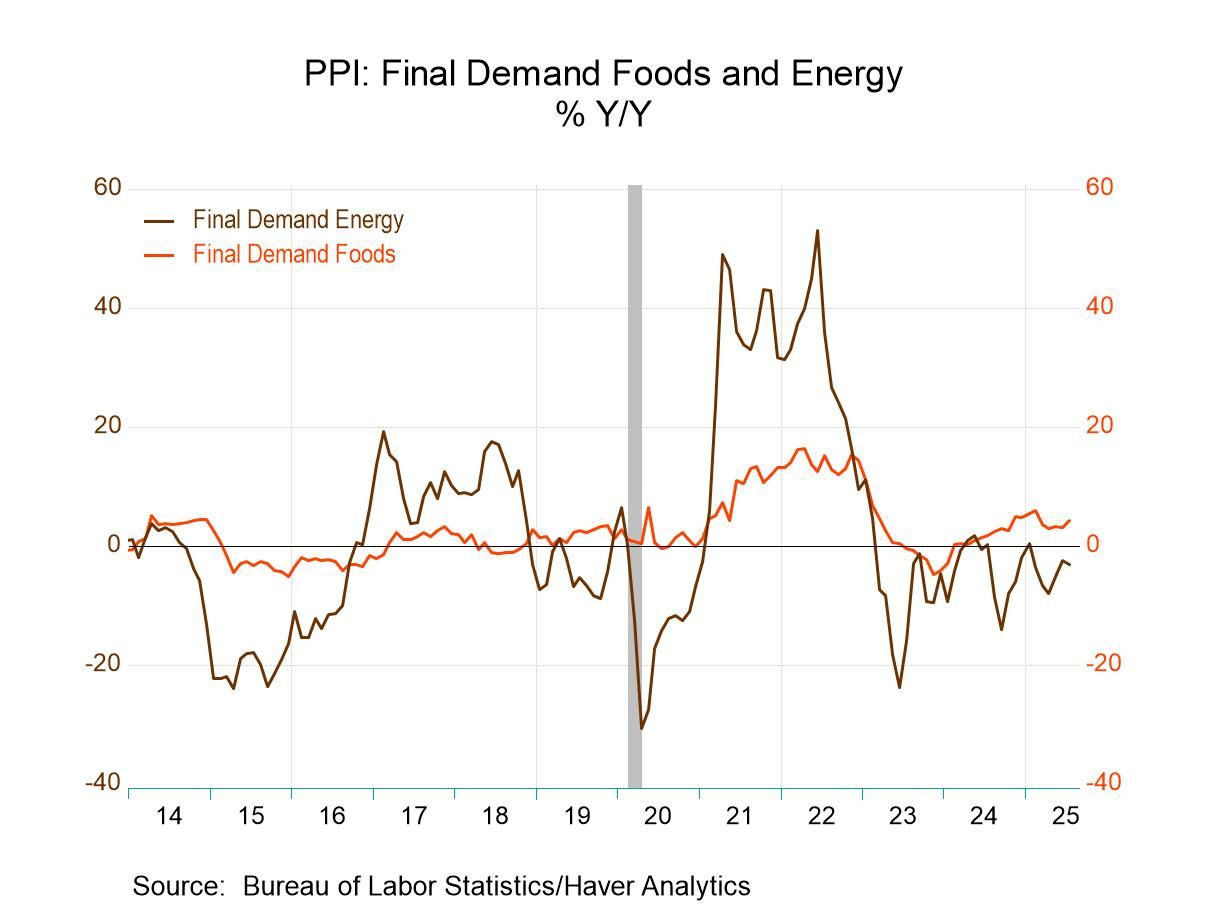
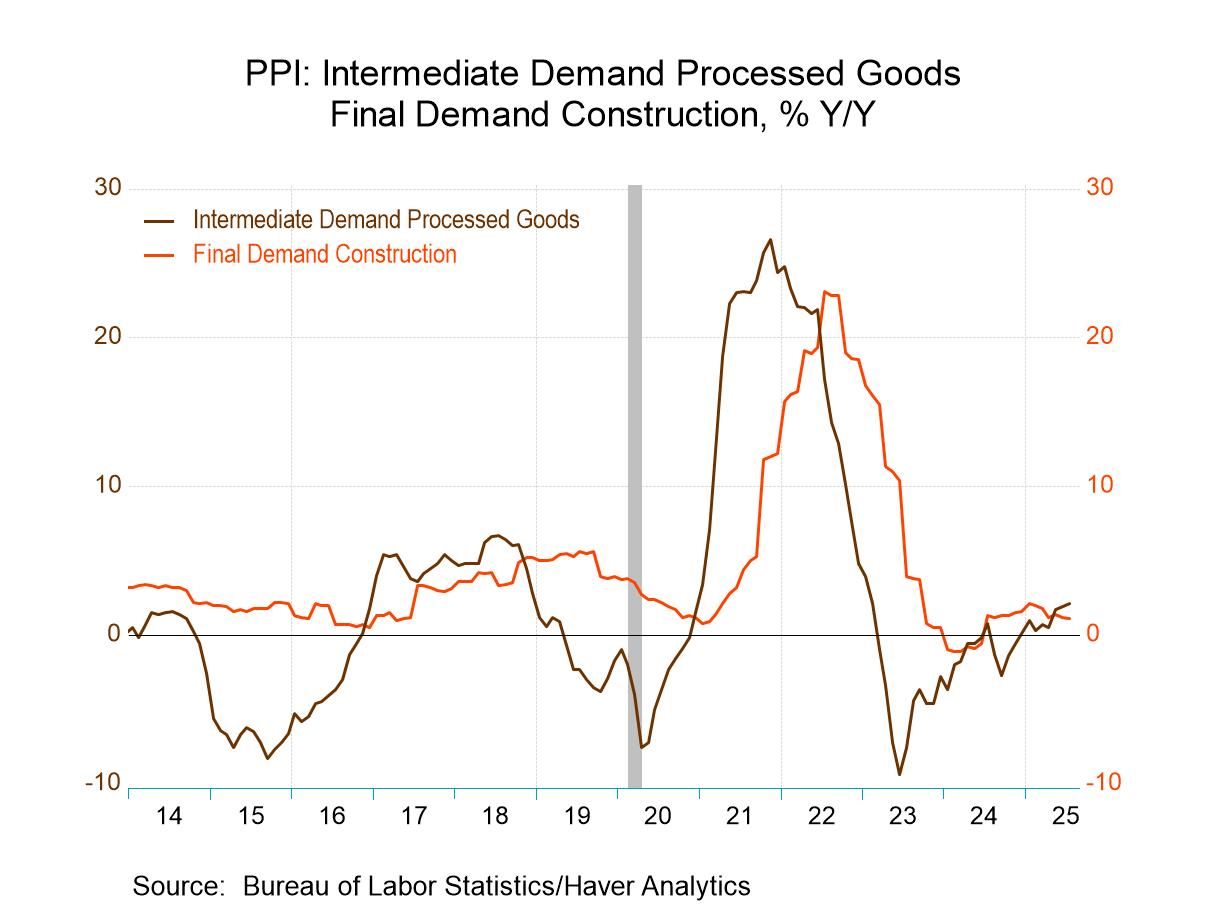
Tom Moeller
AuthorMore in Author Profile »Prior to joining Haver Analytics in 2000, Mr. Moeller worked as the Economist at Chancellor Capital Management from 1985 to 1999. There, he developed comprehensive economic forecasts and interpreted economic data for equity and fixed income portfolio managers. Also at Chancellor, Mr. Moeller worked as an equity analyst and was responsible for researching and rating companies in the economically sensitive automobile and housing industries for investment in Chancellor’s equity portfolio. Prior to joining Chancellor, Mr. Moeller was an Economist at Citibank from 1979 to 1984. He also analyzed pricing behavior in the metals industry for the Council on Wage and Price Stability in Washington, D.C. In 1999, Mr. Moeller received the award for most accurate forecast from the Forecasters' Club of New York. From 1990 to 1992 he was President of the New York Association for Business Economists. Mr. Moeller earned an M.B.A. in Finance from Fordham University, where he graduated in 1987. He holds a Bachelor of Arts in Economics from George Washington University.



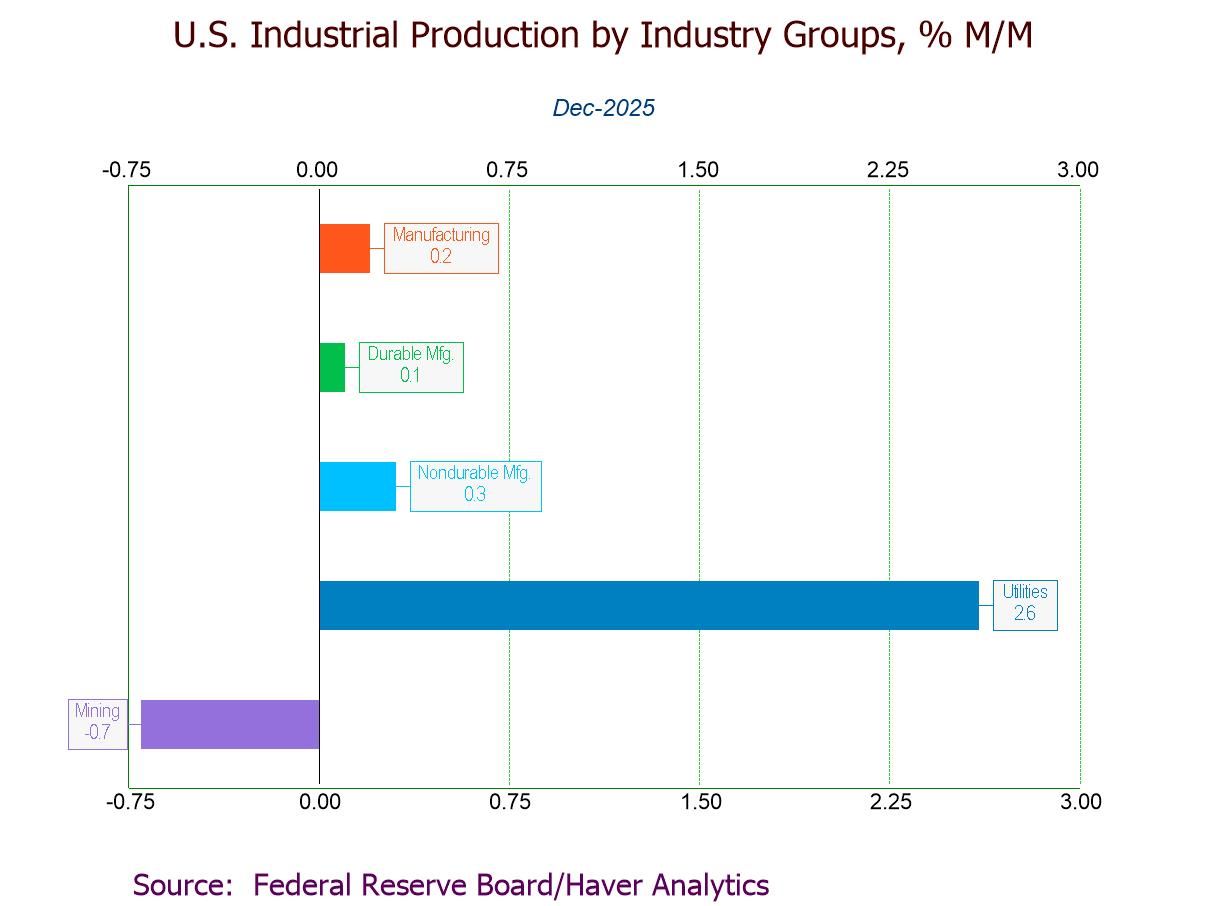
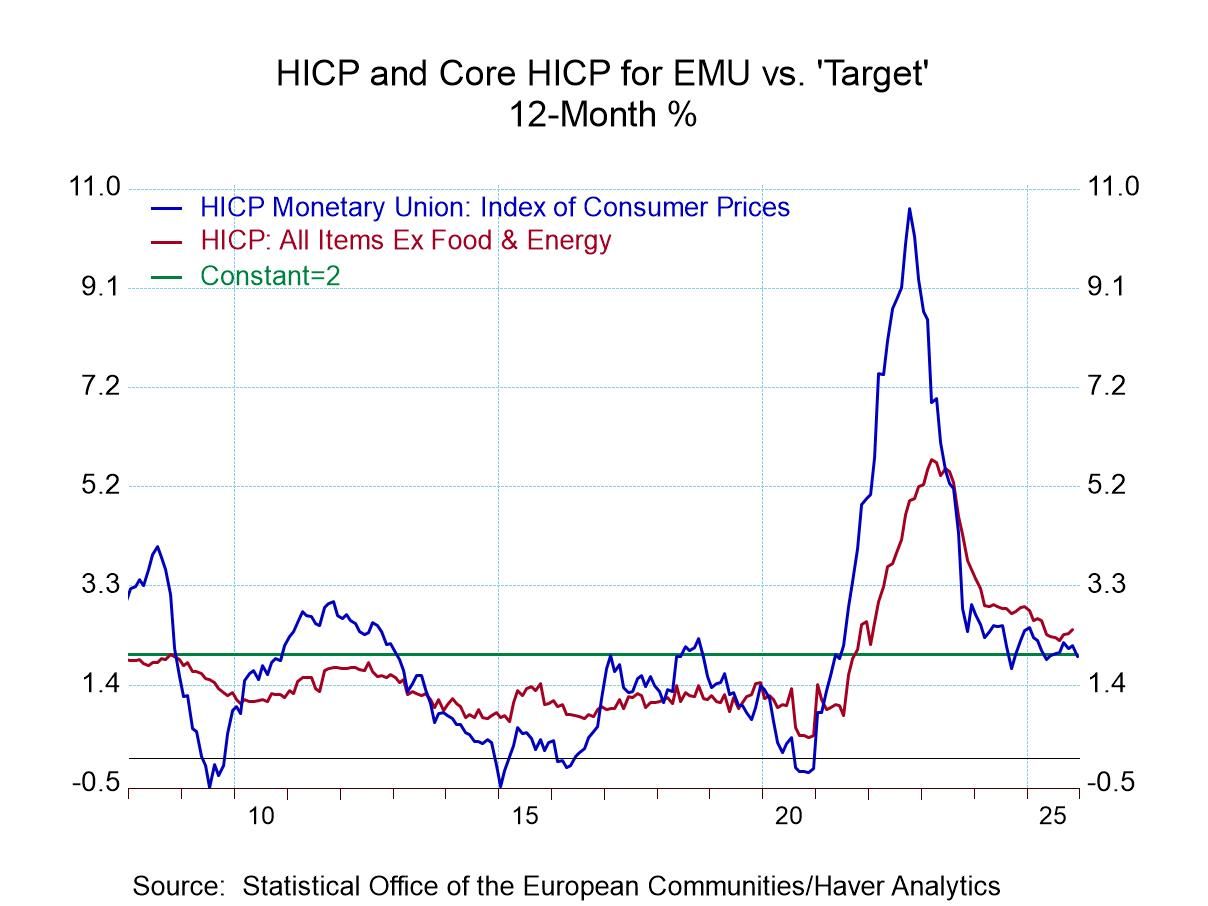
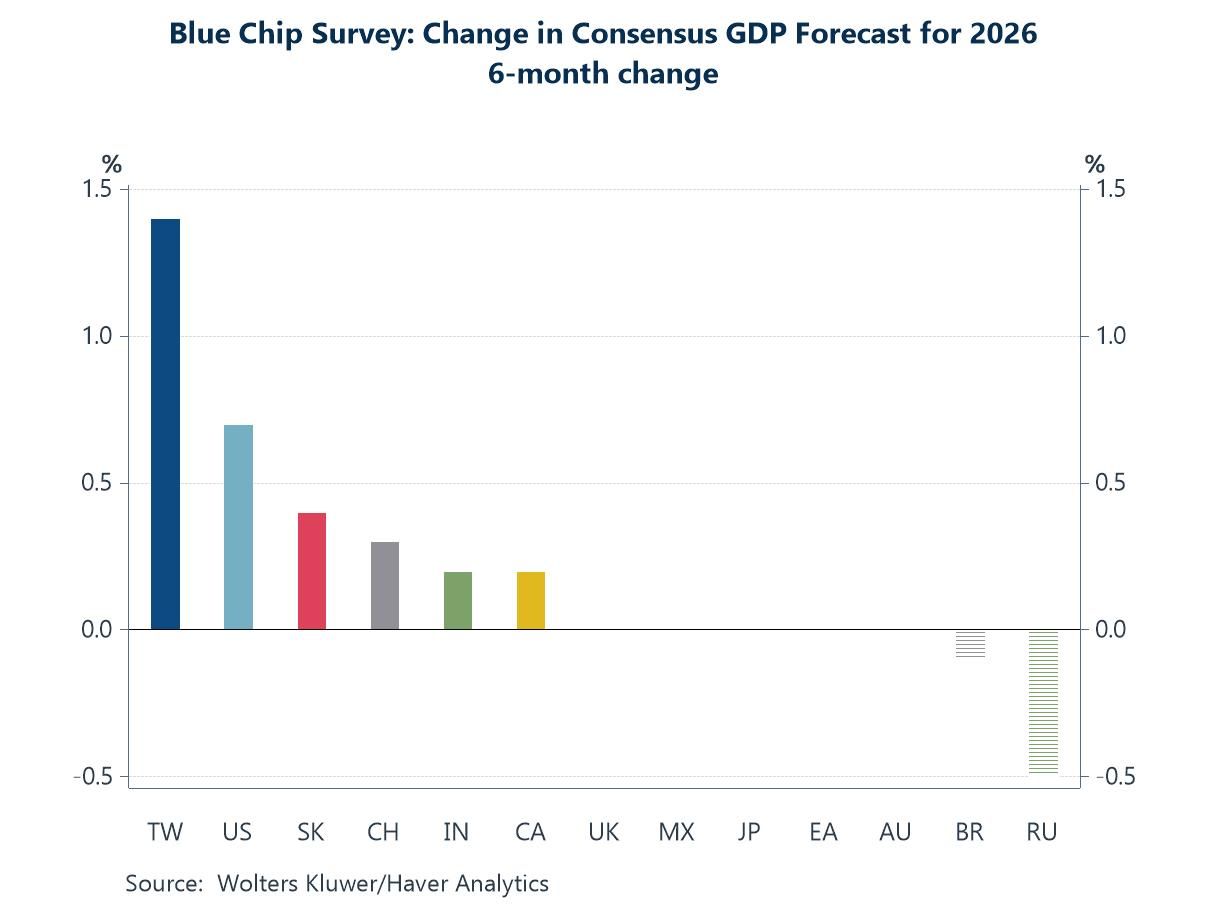
 Global
Global